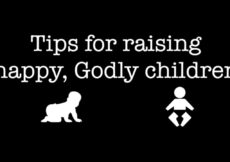How tall will my child be? Many parents have questions and concerns about their child’s height as they grow into adults. But, children’s growth is determined by several factors that may vary from child to child. Although predicting your child’s exact height may not be possible, certain techniques can help you get a rough estimate of their height as an adult.
This post will help you know about a child’s growth and the factors affecting their height.
How Tall Could A Child Be?
Based on estimates, a child’s height is 80% influenced by genetic factors and the rest by environmental factors (such as nutrition). However, the effect of the genes on height is not completely understood. Children of tall parents are expected to be tall, which applies to short parents too (1).
A child’s typical growth rate is found to be about two inches per year from the age of four until puberty for both boys and girls (2). According to the Centers for Disease Control and Prevention (CDC), the average height for men and women in the US is 5’9” and 5’4”, respectively (3). Besides the statistical references, you may also refer to the growth chart below by CDC to understand how your child is growing.
| Age | Height – Females
(in inches) |
Height – Males
(in inches) |
Weight – Females
(in pounds) |
Weight – Males
(in pounds) |
| 1 | 27 to 31 | 28 to 32 | 15 to 20 | 17 to 21 |
| 2 | 31.5 to 36 | 32 to 37 | 22 to 32 | 24 to 34 |
| 3 | 34.5 to 40 | 35.5 to 40.5 | 26 to 38 | 26 to 38 |
| 4 | 37 to 42.5 | 37.5 to 43 | 28 to 44 | 30 to 44 |
| 6 | 42 to 49 | 42 to 49 | 36 to 60 | 36 to 60 |
| 8 | 47 to 54 | 47 to 54 | 44 to 80 | 46 to 78 |
| 10 | 50 to 59 | 50.5 to 59 | 54 to 106 | 54 to 102 |
| 12 | 55 to 64 | 54 to 63.5 | 68 to 136 | 66 to 130 |
| 14 | 59 to 67.5 | 59 to 69.5 | 84 to 160 | 84 to 160 |
| 16 | 60 to 68 | 63 to 73 | 94 to 172 | 104 to 186 |
| 18 | 60 to 68.5 | 65 to 74 | 100 to 178 | 116 to 202 |
Source: Stanford Children’s Health
How To Estimate A Child’s Height?
The different techniques or methods you can use to get a close estimate of your child’s future height are as follows:
1. Two years times two method: It is based on the theory that a child’s height at an early age influences their adult height. You may use this when your child is two years old. For girls, at 18 months, this method can provide a close estimate since girls grow faster than boys. You need to multiply the height at two years, and this will give you a rough measure of your child’s height in adulthood (4). However, the efficacy of this technique has not been proven and lacks adequate research.
2. Mid-parental method: The mid-parental height method is based on the influence of the parents height on their children’s adult height (4).
- Add both the parents heights in inches and divide by two
- For boys, add 2 ½ inches to the entire equation
- For girls, subtract 2 ½ inches from the entire equation
Boys: [(Mother’s height + Father’s height) / 2] + 2.5 inches
Girls: [(Mother’s height + Father’s height) / 2] – 2.5 inches
3. Bone age assessment: The bone age method is mostly used by pediatricians when a child shows unusual growth patterns. It is based on determining the child’s bone age by assessing the growth plates. These are soft cartilages found at the end of long bones. The growth plates determine the growth rate because these plates close once the bones stop growing. The assessment is carried out as follows (5) (6):
- An X-ray of the left wrist and hand, to check open growth plates.
- After determining the extent of the opening, the bone age is assigned that is different from the child’s age.
- The bone age provides a rough estimate of the height left to attain by assessing the growing pattern of the bones.
4. Height calculator: A height calculator can help you understand your child’s future height. You may try the height calculator, whose predictions are based on the parents’ height and the child’s current height, weight, and age.
What Factors Affect A Child’s Height?
Factors that can influence the growth of children include:
1. Family history and genetics: As mentioned above, children are likely to inherit their height from the parents. A family history of short or tall stature can influence your child’s adult height due to the genetic makeup.
Genes may also play a role in determining the height of children. It is believed that boys may be taller than girls in some cases. This can be because girls possess two X chromosomes and reach puberty earlier than boys.
2. Puberty: This is the period when a child is going through different physical changes, such as facial hair, hair growth in the pubic and armpit area, and mild acne. There is a sudden peak in the typical growth of children as they reach puberty around eight years (7).
3. Nutrition: It is evident that nutrition contributes to the child’s growth. Lack of adequate nutrition and a balanced diet can cause children to be short stature as they grow up. You should consult your child’s pediatrician to understand your child’s nutritional status (4) (7).
4. Health conditions: Some health conditions affecting the child’s height include (4):
- Reduced or excess growth hormone production leads to delayed growth or gigantism (characterized by extra height) than other children of the same age.
- Underlying morbidities, such as digestive problems, disorder of the kidney, heart or lung, and persistent stress.
- Children suffering from chronic illnesses, such as arthritis, cancer, and celiac disease tend to be shorter than the average height of their age.
When Should You Worry About A Child’s Height?
Although slight deviations from the normal growth curve shouldn’t raise concerns, unusual growth can indicate an underlying condition. Therefore, you should consult a pediatrician in the following circumstances (8):
- Unusual increase in height compared to children of the same age. This can be the result of precocious puberty due to hormonal changes. The early start of puberty causes a rapid growth spurt that stops before the normal age and results in short stature as an adult.
- Slow growth can also indicate hormonal change. Abnormally short stature could result from growth hormone deficiency due to underlying pituitary damage.
- A child’s short stature or even an extreme height compared to their friends or peers can cause them to feel stressed or depressed, which requires immediate medical attention and support.
Worrying about your child’s growth and development is normal. But remember that each child is different in their physical development. Hence, do not worry if your child is not growing according to the standardized growth charts. Instead, observe their growth and follow up with the regular pediatrician visits to ensure a healthy, overall development while providing them with the best nourishment and support.
References:
MomJunction’s articles are written after analyzing the research works of expert authors and institutions. Our references consist of resources established by authorities in their respective fields. You can learn more about the authenticity of the information we present in our editorial policy.
The following two tabs change content below.




































